Search Results for: receptor
Actions of Caffeine in the Brain with Special Reference to Factors That Contribute to Its Widespread Use
IV. Actions of Caffeine on Brain Functions and Behavior Having discussed the molecular and neuronal actions of caffeine,... Read More
Sensory Systems
A sensory system is a part of the nervous system consisting of sensory receptors that receive stimuli from the internal and... Read More
Endocytosis
Endocytosis Definition What is endocytosis in biology? Endocytosis is a cellular process by which a cell internalizes any... Read More
Mechanoreceptor
Definition noun, plural: mechanoreceptors A sensory receptor chiefly in the skin or in the body surface of an organism used... Read More
Homeostatic Mechanisms and Cellular Communication
Homeostasis is the relatively stable conditions of the internal environment that result from compensatory regulatory... Read More
Olfactory receptor cells
olfactory receptor cells Very slender nerve cell's, with large nuclei and surmounted by six to eight long, sensitive cilia... Read More
Chemoreceptor
Definition noun, plural: chemoreceptors (1) A sensory nerve cell or sense organ, as of smell, or taste, that are able to... Read More
Homeostasis
Homeostasis is the tendency not to stray from the range of favorable or ideal internal conditions. Such conditions must be... Read More
Phagocytosis
Phagocytosis Definition Phagocytosis is a basic physiological cellular process wherein a cell ingests a solid particle... Read More
Autocrine signaling
Autocrine Signaling Definition What is autocrine signaling? Autocrine signaling is a type of cell signaling wherein a cell... Read More
Inhibitory postsynaptic potential
Inhibitory Postsynaptic Potential Definition An inhibitory postsynaptic potential is a type of synaptic potential. It is... Read More
Pinocytosis
Pinocytosis Definition What is pinocytosis? Pinocytosis is the ingestion of extracellular fluids, i.e. the fluid... Read More
Thermoreceptor
Definition noun, plural: thermoreceptors The sensory nerve ending in a sensory cell sensitive to changes in temperature... Read More
Merkel disk receptor
Definition noun A single sensory nerve ending characterized by a terminal cuplike, expanded tip that is in contact with the... Read More
Feedback mechanism
Feedback Mechanism Definition What is a feedback mechanism? A feedback mechanism is a physiological regulation system in a... Read More
Vasopressin
Definition noun, plural: vasopressins An antidiuretic peptide hormone produced by the magnocellular and the parvocellular... Read More
Argipressin
Definition noun, plural: argipressins A vasopressin that has an amino acid sequence:... Read More
The biology of how the brain forgets
Our brain tends to forget things that we wish we would always remember. And yet, it cannot forget certain things we wish... Read More
Endoplasmic reticulum
Endoplasmic Reticulum Definition The endoplasmic reticulum is a membrane-bound organelle in cells of eukaryotic cells... Read More
Adipose tissue
Adipose Tissue Definition Adipose tissue, a specialized variety of connective tissue, is composed of lipid-rich cells known... Read More
Down-regulation
Down-regulation (Science: physiology) development of a refractory or tolerant state consequent upon repeated administration... Read More
Immune response
Immune Response Definition An immune response is defined as the reaction of the body in response to the presence of a... Read More
Intrinsic sympathomimetic activity
Definition noun The property of a drug that produces partial agonist effect at the receptor similar to the cholinergic... Read More
Prostaglandin
Definition noun, plural: prostaglandins A group of eicosanoids, structurally characterized as 20-carbon unsaturated fatty... Read More
Axon hillock
Axon Hillock Definition What is axon hillock? If you are familiar with the different parts of the neuron, the axon hillock... Read More
Positive feedback
Positive Feedback Definition Each mechanism of the body like temperature, blood pressure, and levels of specific nutrients... Read More
Cytotoxic T cell
Definition noun, plural: cytotoxic T cells A T cell responsible for inducing death to target cells (e.g. infected somatic... Read More
Proprioceptor
Definition noun, plural: proprioceptors A sensory receptor located in the subcutaneous tissues, and is capable of detecting... Read More
Neural Control Mechanisms
Nerve cells called neurons generate electric signals that pass from one end of the cell to another and release chemical... Read More
Principles of Hormonal Control Systems
Hormones are chemical messengers that enter the blood directly upon their secretion from endocrine glands. A single gland or... Read More
Muscle spindle
Definition noun The neuromuscular spindle is a fusiform mechanoreceptor (specifically a stretch receptor) within the... Read More
Second messenger
second messenger (Science: molecular biology) In many hormone sensitive systems the systemic hormone does not enter the... Read More



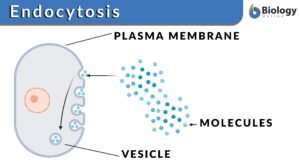




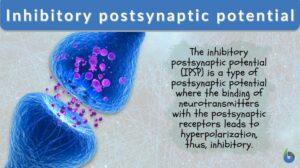
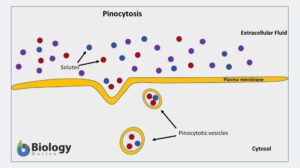






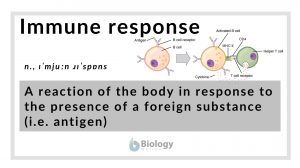
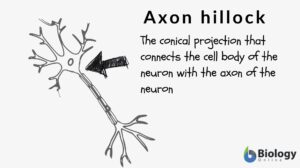





![Biology n., [baɪˈɑlədʒi] Definition: scientific study of life](https://www.biologyonline.com/wp-content/uploads/2021/12/biology-definition-and-branches-of-biology-300x168.jpg)